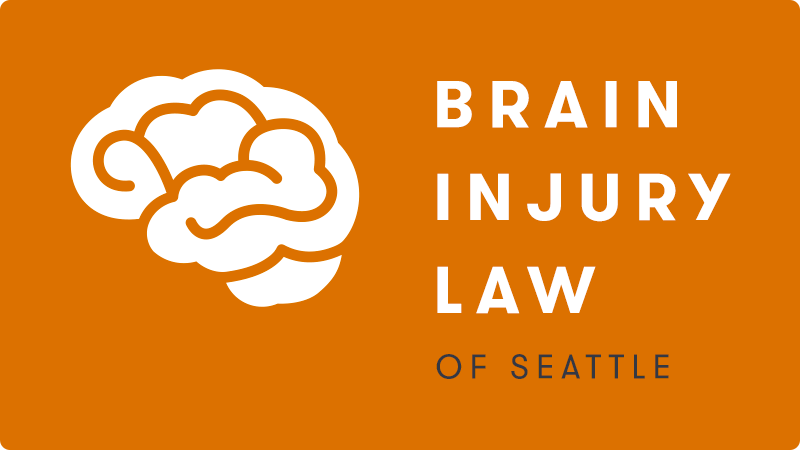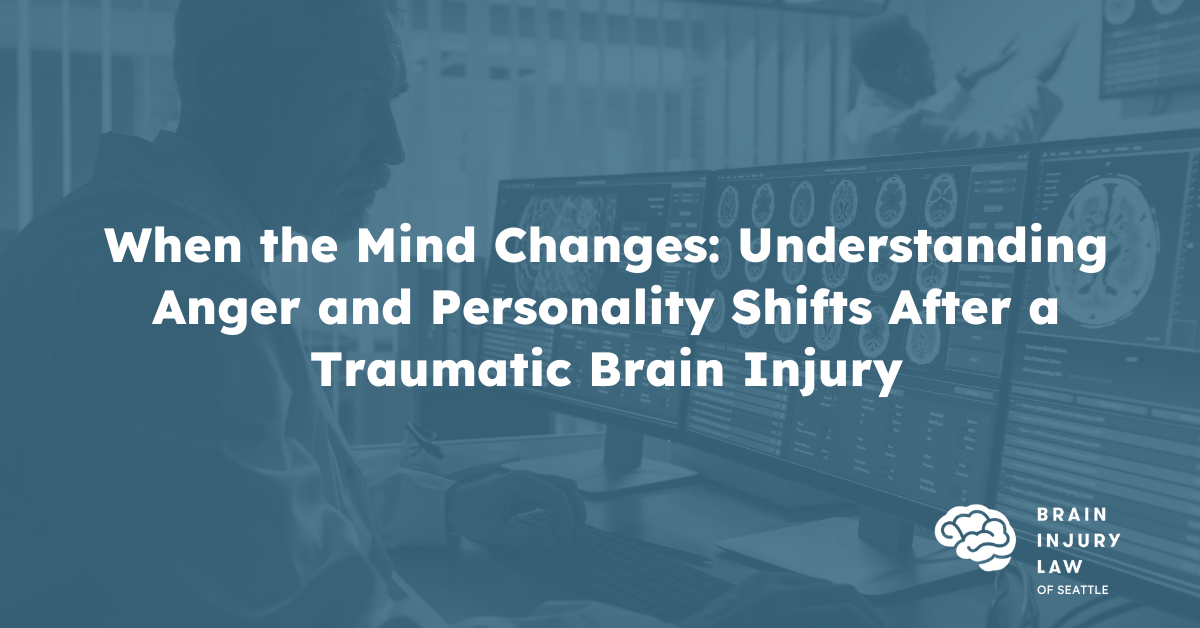A traumatic brain injury (TBI) can change you at your core, the part that makes you you. Personality change occurs in 59.1% of traumatic brain injuries, according to researchers.
A once calm and patient individual may suddenly become irritable, short-tempered, withdrawn, or exhibit childlike behavior after a brain injury. Some talk nonstop; others barely speak at all. For many, these changes are more devastating than the physical injuries themselves.
Let’s explore the reasons why emotional control and personality can change after a TBI, how anger and mood swings develop, and what families can do to cope, heal, and support long-term recovery.
Page Contents
The Brain’s Role in Personality and Emotion
Your patience, humor, empathy, and self-control—your personality—is generated in several regions of the brain. The frontal lobes, particularly the prefrontal cortex regulate impulse control, decision-making, and emotional balance.
The temporal lobes help interpret emotions and social cues. The limbic system, including the amygdala, manages fear, anger, and emotional memory. When a head injury disrupts these systems through bruising, bleeding, or damaging nerve fibers, the effects can ripple across your personality. Even a mild concussion can temporarily change brain chemistry, and a severe TBI may alter neural pathways permanently.
The result? Emotional responses may become exaggerated, unpredictable, or completely out of character.
Personality Changes After a Concussion—Anger and Irritability
Brain injuries and anger often go hand in hand. Survivors often find themselves snapping over minor frustrations, like traffic, a misplaced object, or a simple question. A newly acquired sensitivity to bright lights, noise, or too much activity can lead to irritability.
To the injured person, outbursts may feel impossible to control and are usually followed by guilt or confusion. As we mentioned above, frontal lobe damage reduces impulse control, making it physiologically harder to filter angry reactions—the brain’s signaling systems for frustration and calm are knocked out of balance.
Mood Swings and Emotional Volatility
Emotional volatility, which encompasses rapid and unpredictable mood swings, is another type of post-TBI personality change. A brain injury victim might laugh one moment and cry the next with no obvious reason.
In some cases, TBI survivors experience episodes of inappropriate behavior, such as uncontrollable laughter or crying unrelated to their true feelings—the pseudobulbar affect (PBA). It results from damage to parts of the brain responsible for emotional expression.
These emotional swings are often triggered responses to fatigue, stress, or sensory overload, which probably had little to no effect prior to the injury. It’s important to remember that the cause is neurological.
Talking Too Much—or Hardly at All
Changes in communication are another type of personality change after a head injury.
Some survivors develop pressured speech—talking excessively or rapidly, jumping between topics, or oversharing personal details. This can stem from frontal lobe damage affecting impulse control and social awareness.
Others experience reduced speech or emotional flatness, speaking little and showing less facial expression. Both extremes can isolate survivors.
Loss of Patience and Low Frustration Tolerance
To most people, waiting in line or handling a small setback are not reasons for emotional outbursts. But, after personality changes caused by a TBI or head injury, these same situations can spark intense frustration caused by the inability to plan, reason, and delay gratification.
Over time, these disproportional reactions can lead to shame, social isolation, or depression.
Diagnosis and Treatment Options
If you or someone you love shows personality changes or disproportional anger after a head injury, the next step is to get a comprehensive medical evaluation. This may involve:
- Neuropsychological testing to assess cognitive and emotional function
- Neurological imaging (MRI or CT scans) to identify structural damage
- Psychiatric evaluation for mood or behavioral disorders
Therapy often focuses on helping individuals reconnect with their values and strengths, while families adapt and provide support. Luckily, many personality changes after a concussion or TBI can be treated with medication and therapy, such as:
- Medications like antidepressants, mood stabilizers, SSRIs or anti-anxiety medications can help regulate brain chemistry and help manage irritability and aggression
- Cognitive-behavioral therapy (CBT) can help survivors recognize triggers and practice new coping strategies
- Anger management training can help to restore impulse control, relaxation, and communication skills
- Speech and occupational therapy are used to help rebuild social and communication skills
Small victories matter. Recognizing improvements in patience, communication, or emotional awareness can motivate continued recovery and help families remain supportive.
Learn more about the common symptoms of brain injury here.
TBI and Personality Change—The Emotional Toll on Families
For loved ones, the emotional aftermath of a TBI can be heartbreaking. Spouses and parents often grieve the temporary or permanent loss of the person they knew before as they adjust to the survivor’s new mood patterns, communication style, or social behavior. Caregivers frequently experience burnout, anxiety, and depression.
Understanding that these acquired brain injury behaviors are medically based helps reduce blame and frustration.
Recovery from emotional and personality changes takes time—often months or years—and progress may come in small steps. However, with the right treatment and support, many survivors regain emotional balance and rebuild healthy relationships.
If you or a loved one is experiencing personality changes after a TBI, seek evaluation from a neurologist or neuropsychologist immediately. The sooner treatment begins, the better the long-term outcomes—for the survivor and everyone who loves them.
Compensation for a Brain Injury—We Can Help
A serious head injury doesn’t just injure the brain. It touches every part of life, from relationships to self-identity. Anger, mood swings, and changes in speech or patience are not signs of weakness; they’re signs of trauma in the most complex organ we have.
However, they can complicate all aspects of life.
Recovery requires both medical and legal consultation and expert guidance from qualified professionals in these fields.
If you’ve suffered a concussion or a TBI that have caused personality changes, we can help you understand your legal rights and the steps you need to take in order to secure compensation for your recovery.
Click here to contact us today and schedule a free consultation. We’ll talk about your injury, the symptoms you’re struggling with, and how we can help.






